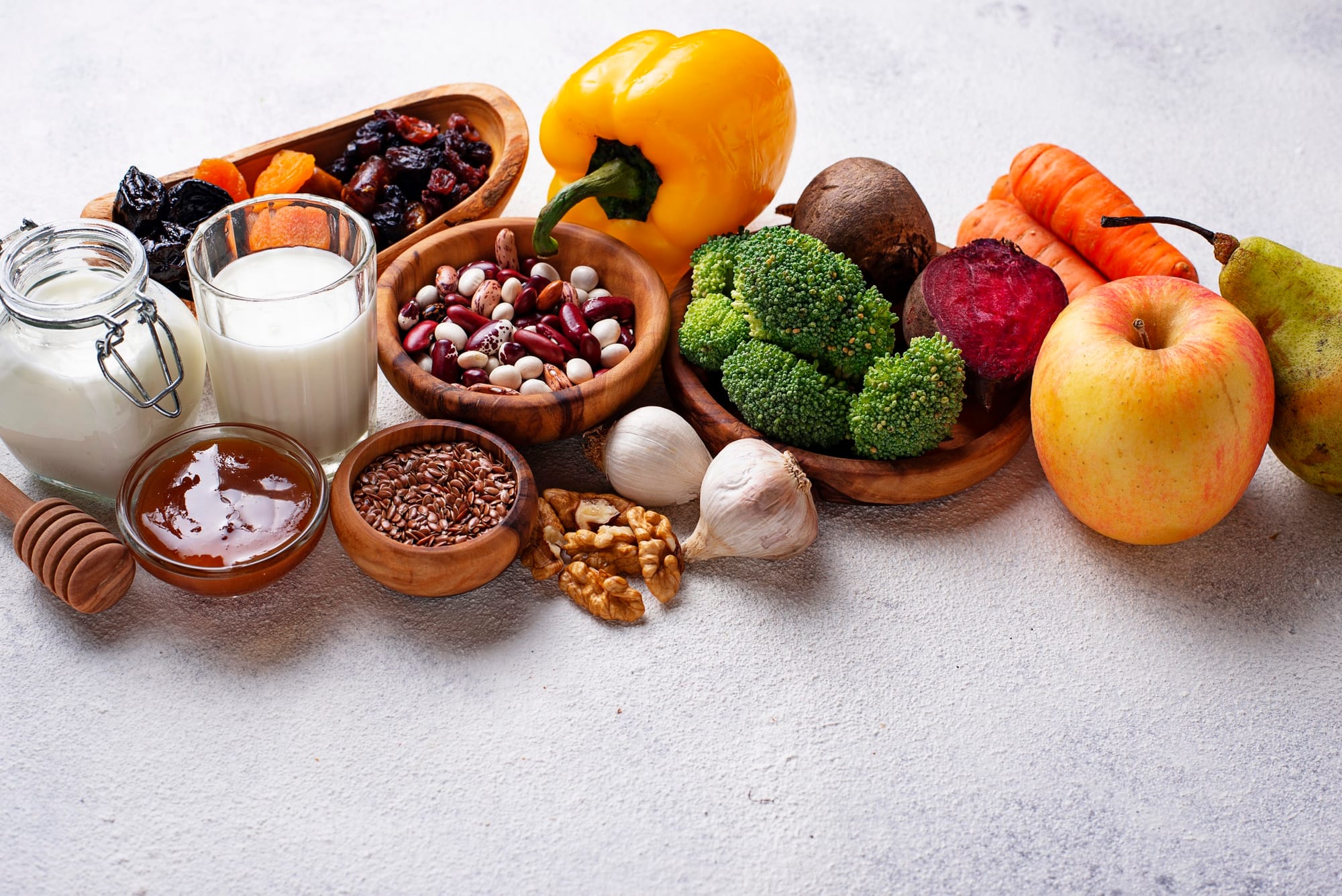Thyroid and Gut Connection

The Gut Microbiome
Your gut microbiome is made up of around 100 trillion microorganisms. If your gut health is compromised, chronic illnesses can develop. Any number of things can disrupt the gut, including medication, chronic stress, refined carbohydrates, and industrial seed oils.
Your gut bacteria can impact everything about your health, including how your brain responds to stress, how well your body can digest certain carbohydrates, the health of your immune system, how you store fat, and much, much more. If your gut microbiome is disrupted, it can cause dysbiosis—which leads to chronic illness.
https://chriskresser.com/how-the-gut-microbiome-influences-everything-about-your-health/
Hypothyroidism diet: Foods for underactive thyroid
Correct diet for your thyroid can offer many benefits like reducing the risk of hypothyroidism, which can lead to numerous health complications. But what foods should you be consuming for your thyroid? Well, we are about to tell you, but first it’s important to understand just how important the thyroid truly is.
Our thyroid is often overlooked unless a doctor raises concerns about it. Although you may not think about it much, it plays a major role in producing hormones and regulating our metabolism. When this process is thrown off, it can cause hypothyroidism (underactive thyroid).
The good news is, hypothyroidism is manageable and one way to do so is through diet.
Table: Hypothyroidism diet meal plan
| Food type | Effect on thyroid | Foods |
|---|---|---|
| Meal plan – Foods to eat | ||
| Selenium-rich foods | Helps to convert T4 to T3 | Brazil nuts, tuna, tomatoes, onions, meat, chicken, salmon, whole unrefined grains, dairy products, garlic |
| Iodine-rich foods | A major component of thyroid hormone balance, helps in keeping up with your body’s metabolism. | Sea vegetables, yogurt, cow’s milk, eggs, iodized salts, seaweeds and seafood, salt water fish, sushi, nori rolls, celtic sea salt |
| Tyrosine-rich foods | Essential for proper thyroid function. Good sources of protein, vitamin B12 and selenium | Wheat, peanuts, soybeans, pumpkin seeds, beef, fish, dairy products, eggs, bananas, avocados, poultry, almonds, salmon |
| Non-cruciferous veggies and fruit | Contain high amounts of antioxidants that help protect your body against damage from free radicals. Also, contain electrolytes like potassium and sodium, which contribute to the movement of fluid in body tissues. | Vegetables – Squash, tomato, bell peppers, green beans, peas, cucumber, asparagus, eggplant, carrots, and celery Fruits – Mangoes, citrus fruits, blueberries, dark-skinned grapes, pomegranates, guavas, cherries, apricots, apples, pineapples, and kiwis” |
| Niacin | Contributes to normal thyroid function | Brown rice, chicken, lamb, pomegranates, tuna, turkey |
| Meal plan – Foods to avoid | ||
| Goitrogenic foods | Prevent body’s ability to absorb iodine and interfere with the function of the thyroid gland. | Bamboo shoots, canola oil, horseradish, bok choy, foods with gluten, garden cress, tempeh, babassu, sweet potato |
| Cruciferous foods | Contain goitrogens, which can inhibit the body’s uptake of iodine. | Cauliflower, cabbage, garden cress, bok choy, broccoli, brussels sprouts, broccoflower and similar green leaf vegetables. |
| Others | Certain foods must be avoided in order to prevent recurrence of hypothyroidism symptoms. | Cassava, linseed, kohlrabi, kale, turnips, mustard greens, mustard, millet, cauliflower, rutabagas, peaches, coffee, spinach |
Eating foods to help hypothyroidism can benefit your overall good health as well. Eating them daily can help boost the health of your thyroid and make living with hypothyroidism manageable and easier to live with.
On the other hand, there are foods you should avoid as they can worsen symptoms and the condition itself.
Foods to avoid in a hypothyroidism diet
Many of the foods to avoid with hypothyroidism are common foods that should generally be avoided or limited as they do not contribute to good health. These items are:
Soy: Soy can interfere with hormones, especially in women.
Cruciferous vegetables: Generally food items like broccoli and cabbage are recommended for healthy eating, but not if you have hypothyroidism. This type of food can interfere with the production of thyroid hormones.
Gluten: Although commonly avoided by those with Celiac disease, gluten should also be avoided if you have hypothyroidism.
Fatty food: Fatty foods may interrupt the absorption of thyroid medications.
Sugary foods: With an already slower metabolism adding sugary foods will lead to greater weight gain.
Processed foods: Hypothyroidism can result in higher blood pressure, so the added salts from processed foods will only worsen this.
Too much fiber: Fiber is good to keep us regular, but not in the case of those with hypothyroidism.
Coffee: You may have to cut back on your morning coffee. Caffeine can limit the absorption of thyroid hormone replacement medications.
Alcohol: Alcohol can disrupt the production of thyroid hormones and reduce the body’s ability to utilize these hormones.
Hypothyroidism is something you can live with. Along with medications, a hypothyroidism diet can greatly improve your everyday life and assist your thyroid.